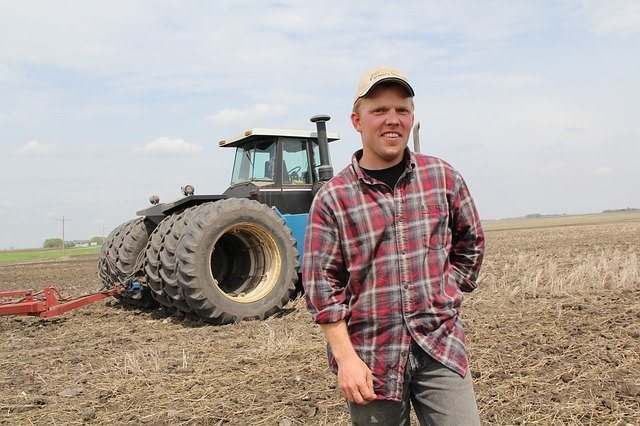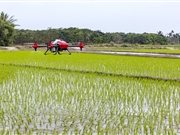USDA to Help Socially Disadvantaged and Veteran Farmers and Ranchers Grow their Businesses and Access USDA Programs
March 25, 2020 By Chris B.

The 2501 Program helps socially disadvantaged, veteran, and beginning farmers and ranchers own and operate farms and ranches and ensures equal access to the full range of USDA programs and services in agriculture, forestry, and related programs.
Photo by: anned
The U.S. Department of Agriculture seeks qualified individuals to serve as peer reviewers to evaluate proposals that support socially disadvantaged and veteran farmers and ranchers. Panelists will review fiscal year 2020 proposals for the Outreach and Assistance for Socially Disadvantaged Farmers and Ranchers and Veteran Farmers and Ranchers Program (also known as the 2501 Program). This program is administered by USDA’s Office of Partnerships and Public Engagement (OPPE).
The 2501 Program helps socially disadvantaged, veteran, and beginning farmers and ranchers own and operate farms and ranches and ensures equal access to the full range of USDA programs and services in agriculture, forestry, and related programs. With 2501 Program grants, nonprofits, institutions of higher education and Indian Tribes can support socially disadvantaged and veteran farmers and ranchers through education, training, farming demonstrations, and conferences on farming and agribusiness, and by increasing access to USDA’s programs and services.
Past projects have helped hundreds of new farmers and ranchers succeed in their career path on the farm. One FY19 grantee hosted training workshops in northeast Mississippi on topics such as high tunnel construction, drip irrigation, marketing, herd health, and bookkeeping. As a result, more than 30 socially disadvantaged and veteran farmers and ranchers pooled their resources and training to install five high tunnels for themselves and their fellow farmers with assistance from USDA’s Natural Resources Conservation Service. With another FY19 grant, the PA Veteran Farming project hosted a daylong conference that brought together 54 veteran farmers with representatives from USDA, the Small Business Administration, the Penn State Small Business Development Center, and other agritourism professionals. This event resulted in new business connections, and expanded the Pennsylvania network of veteran farmers and the organizations helping them grow their businesses.
The peer review approach brings together diverse individuals who can provide fair, expert, and unbiased evaluation of proposals. The peer review process will take approximately three to four weeks. Reviewers will examine proposals electronically for two to three weeks, then gather in Atlanta, Georgia for one week to finalize reviews and scoring. USDA will provide compensation and travel expenses for reviewers.
If you are interested in serving on the peer review panel, and your affiliated organization is not applying for a 2501 grant, send your resume to 2501grants@usda.gov, no later than April 30, 2020. Your resume should address, but not limited to, the following areas:
- Education, professional, and grant-related experience;
- Knowledge or experience in providing technical assistance, outreach, and education to socially disadvantaged and/or veteran farmers and ranchers;
- Knowledge or expertise in accessing USDA programs and services administered by Farm Service Agency, Natural Resources Conservation Service, Rural Development, or other USDA agencies.
For additional information, email 2501grants@usda.gov or call 202-720-6350.






